Books read in 2019
February 9, 2020
In one of the strangest years of my life so far, I didn’t stop reading. While there were a couple of stints where I didn’t have the time or motivation to read for weeks at a time, I still made my goal: reading the equivalent of 24 books of 300 pages each, or ~7200 pages total. Some were much longer, and others shorter, but things averaged out, which was the whole point of not setting a goal based on number of books, but pages. In fact, I surpassed the target and ended up reading ~7500.
For 2019, I had a healthy mix of fiction and non-fiction, and a good portion of the books were assignments for The Modern and the Postmodern, Michael Roth’s MOOC. I also read a lot of selected chapters and short essays from a variety of sources, but I’m not including them in this list.
Anyway, on to the books!
Madame Bovary - Gustave Flaubert

The year started out with an atypical book for me, a piece of French literature that was assigned reading for the MOOC on Modernism and Postmodernism mentioned above. The novel critiques the rise of the bourgeoisie and their desire for climbing the social ladder, which explained its inclusion in the course. I went in thinking I wouldn’t enjoy it, but the notes on gender roles and class difference, paired with the dichotomies of urban vs. rural life and religious vs. scientific thought through the eyes of XIX century French people made it worth my time. Flaubert does an outstanding job of delineating the boundaries of the worlds in which his characters develop as the middle class carves itself a spot in society, and I finished the book with a deeper understanding of the historical context in which it unfolds.
Thinking in Systems - Donella Meadows

Thinking in Systems is a study of models, and the ways in which seemingly unrelated problems can be understood using the toolset of stock and flow analysis. Meadows argues that common structures arise from the interaction of simple sub-systems, and that by pattern-matching against a few archetypes we can grasp the long term behavior of many systems. She suggests that we should treat complex system structure as the source of behavior, and think of everything else as epiphenomena. Paraphrasing Meadows, we can use the fact that similar feedback loops lead to similar dynamics to simplify the task of understanding the world around us. I enjoyed reading it, but it felt like a shallow recap of things I had studied before. It’s likely not worth reading if you have an engineering background. If you have a suggestion for a good modern follow up that is more technical, I’d love to hear it.
Check out my full review here.
Paris Spleen - Charles Baudelaire
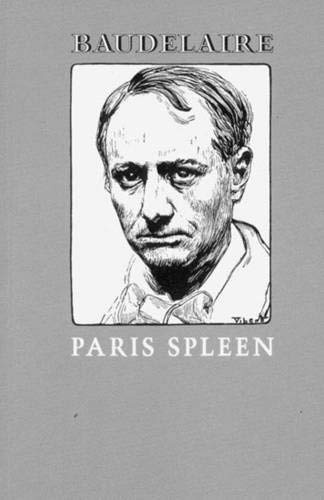
If reading a French novel was atypical for me, following it with French poetry was even further from the ordinary. This was also part of Roth’s class. The book is comprised of 50 prose poems on the beauty and despair of the modern city, touching on morality, time, poverty, envy, class conscience, and guilt. While Baudelaire describes XIX century Paris specifically in his poems, it’s very strange how many of the same ideas could be used to describe the relationships between the strangers sharing a city in 2020 San Francisco or New York. It’s almost as if most humans are awful with each other everywhere, and at every point in time.
Civilization and its Discontents - Sigmund Freud
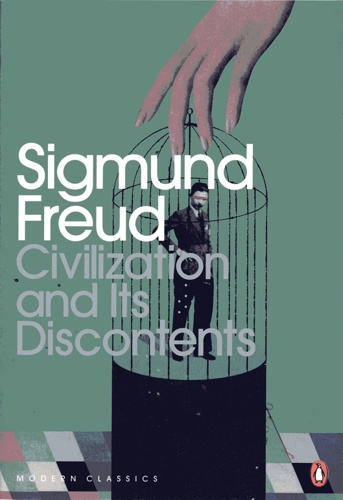
Yet another book read for Roth’s MOOC. I really enjoyed the first few chapters, with their focus on history, religion, and the organization of society, including some theorizing on the origins of its rules, but the second half was too abstract and repetitive. In Civilization and its Discontents, Freud explores the tensions between individuality and society. He asks us to consider how strange it is that modern society develops institutions as palliative measures against the displeasures of life — think religion and media — and that those same tools ultimately make us feel worse, being the source for much of our misery. His argument revolves around the balancing act we all have to take part in between personal desires and society’s expectations. He makes a critique of the role that religion and the modern state take in setting those expectations, which aligned pretty well with some of my own views. The analysis seems convincing, but a lot of the claims are simply not supported by any evidence, and the reader is supposed to take the author’s conjectures as true, which I did not care for. I don’t think I will be reading more Freud soon.
State Tectonics - Malka Older

The third and last installment in Older’s Centenal Cycle series. Like its two predecessors, State Tectonics takes the reader through a diverse global stage as it tells the story of a speculative social system and its growing pains. Also, like the two previous volumes, State Tectonics touches on ideas of how democracy is strained when there is no agreement on shared objective truths, and questions whether such consensus is possible or even desirable. The narrative is set five years after the end of Null States, and the story line continues smoothly with the same characters more or less where you’d expect them to go after a few years. In this book there is an even deeper exploration of the conflict between top down and bottom up approaches to gathering and distributing information as the main characters come to the conclusion that there is no such thing as neutrality.
I truly believe this series has not gotten the attention it deserves, and while I didn’t enjoy State Tectonics as much as the previous two in the series, I will likely end up re-reading all three. Older has a lot of layers packed in here, and she does a great job of shining a light on real problems that the rest of us are barely scratching the surface on. I’m excited to see where her work takes her next.
The Design of Everyday Things - Don Norman

I first heard of Norman and his opus during my first year at Northwestern, where every engineering freshman has to take a class on design and communication. Norman is one of the founders of the engineering school’s Design Institute, so probably he had a hand in the original curriculum of that class, and still holds some influence in his position as an emeritus professor.
The book explains the role of design in our daily life, noting how an average person interacts with tens of thousands of objects, and how learning to use each one takes time and effort. The designer’s job in Norman’s eyes is to think of how objects and processes can be built to minimize the amount of time necessary to use or understand them, but more importantly to reduce the chance of user errors. “If an error is possible, someone will make it” was one of the lines in the book that I related to the most as a software engineer. Half of the programmer’s job is thinking of all the ways in which things could go wrong, and the edge cases that require special handling. Importantly, people also design the tools with which we design, and we can build constraints into those tools to help our future selves avoid mistakes in the creation process. Norman’s ideas are very straightforward, and many of his examples are famous by now, like his example of door handles that indicate push or pull, or the many ways in which a diskette could be inserted in a computer (translating today to the painful USB-A standard). However, while the ideas are simple, keeping them present in the creative process is really tough, particularly while satisfying many other constraints.
Here’s a short Twitter thread with a few excerpts that I compiled as I was reading, but I do very much recommend reading the whole thing. It will be worth your time, and make you see the objects in your daily life in a new light.
On The Road - Jack Kerouac

This book felt like a good way to understand the development of culture in mid-century US, and a good (although narrow) view of the lower middle class lifestyle of San Franciscans back then. Of course, I knew of the Beats. I live in San Francisco and often hang out at City Lights and the surrounding area in North Beach, but this was my first time reading one of their main works. The book is a fun read, and I really enjoyed the twisting and turning trips that Sal and Dean went on, meeting friends and strangers along the way.
An aspect I found especially interesting was the identity angle. Kerouac writes “I thought of all my friends from one end of the country to the other and how they were really all in the same vast backyard doing something so frantic and rushing about” which reminded me of Imagined Communities, and the role that shared time plays in our identities. In On The Road, shared time and culture comes from media, especially music. I found it notable that when Kerouac talks about his friends in a shared vast backyard, the yard is limited to the United States, and perhaps a bit of its bordering neighbors where his friends might have percolated to. Later in the book the backyard expands to a crew of Mexicans in Bakersfield and Sabinal. I found the book to be very much an artifact of American culture, which was part of what made it worthwhile.
Hackers and Painters - Paul Graham

Graham might be one of the most influential thinkers in Silicon Valley. I’ve been reading his work for years, and a few years ago I even spent some time analyzing the hidden network behind his essays, so Hackers and Painters had been on my to-read list for a while. Much like the essays he posts on his site, the ones featured in this book cover a lot of ground: from super nerdy treatises on programming languages (particularly Lisp), to quick thoughts on entrepreneurial strategies, analyses on culture and wealth, education, history and more. Throughout the book, Graham makes sure to pepper in aphorisms on the relationships between art, history, and innovation.
As much as I enjoyed reading it, I think there’s no doubt that Graham’s best essays follow this book. If you are interested in startups, you can’t miss Before the Startup, Do Things That Don’t Scale, Default Alive or Dead, and Startup = Growth, etc… However, make sure not to drink too much kool-aid — after all, the Bay Area is well known for it.
To the Lighthouse - Virginia Woolf

To the Lighthouse was another book I read for my philosophy course. While it is considered one of the best novels of the XX Century, out of all of the stuff I read for my class it was possibly the one I found the most boring and confusing. Woolf weaves the story of a family through their visits to their summer house where friends and visitors often come over for social events. The occurrence of World War I completely changes the characters’ tone between the first and last sections of the book, sharply expressing the central theme of how the passing of time affects human relationships with others, and with themselves. To the Lighthouse is a study on human perception, with the same objects, standing in for different metaphors and different meanings for different characters, sometimes in the same moment, and sometimes spanning years. There were interesting passages, and some of the characters’ inner-dialogues were compelling, but ultimately I don’t think the book was engaging enough to recommend.
Foucault's Pendulum - Umberto Eco

This was the second of Eco’s novels I’ve read, and I enjoyed it even more than The Name of the Rose. The Pendulum follows a group of editors as they develop a vanity press as a side business, inviting authors of occult and mystical topics to publish their works. As the plot develops, the editors start to believe some of the conspiracy theories being pandered by their clients, and ultimately end up learning too much, endangering themselves by association. The kabbalistic references and the esoteric spiritual stuff went a bit too far for my taste, but Eco’s play with intertextuality, along with his mixing of history and fiction was just wonderful. Perhaps my favorite thing about the book was the characters’ transition from skeptics to credulous followers, and the way in which they show that we’re all susceptible to a cohesive narrative.
The Maltese Falcon - Dashiell Hammett
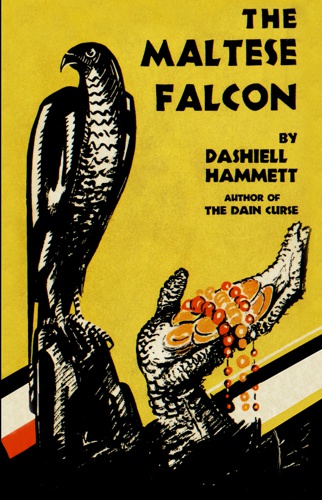
After doing the amazing Bikes to Books tour of San Francisco, and hearing of the murder of Miles Archer, I was inspired to pick up The Maltese Falcon and dive into the mystery genre for the first time. Instead of reading it, I listened to the audiobook, which made the book feel like the film noir classic that it is. It follows detective Sam Spade as he investigates a set of murders linked to the search for a falcon statuette. There aren’t many surprises in terms of character development, but the plot itself is full of twists, and written in an unabashedly 20’s tone. If the Falcon seems full of obvious tropes, it is likely because Hammett built the template for the authors that came after him.
Individualism and Economic Order - F.A. Hayek
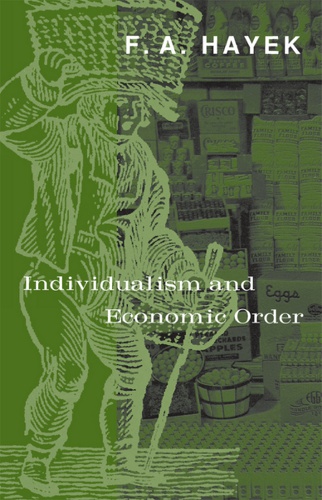
In a recent episode of Conversations with Tyler, the host, Tyler Cowen, asked Russ Roberts which of Hayek’s books had influenced him the most. Russ replied with The Fatal Conceit, but added that he points people to read Hayek’s essays in Individualism and Economic Order to get acquainted with his work first instead. So here we are.
My first encounter with Hayek was in 2015, reading his essay The Use of Knowledge in Society (which is included in this book) after my Money and Banking professor suggested it while discussing my interest in agent-based modeling and emergent behavior. Little did I know how much that conversation would influence my views. The essays in this collection mostly revolve around the pervasiveness of knowledge problems and our lack of tools to get to optimal answers analytically in a complex world, but cover a broad set of topics, from political philosophy to language, history, and science. There’s a lot of deep thinking here on human incentives, social bonds, the organization of society, and more. On the other hand, Hayek also spends time on discussions that seem for the most part irrelevant today, such as the direct attacks on Soviet planning. If I had to recommend an essay from this set other than Use of Knowledge, it’d have to be Individualism: True and False, less so for the controversy between the strains of liberalism it tries to explain, but instead for its arguments for local knowledge and the value of individual decisionmaking in the concentric circles around each one of us as individuals. Hayek’s work is accessible, but densely packed and layered. It’ll take me a few re-reads to fully understand his positions.
As an aside, I find the fact that Hayek’s books were impossible to find quite troubling. My dismayed tweets about the search for a the book in both SF and in Boston didn’t help me find a local bookstore carrying it, but it inspired my brother Max and my twitter friend Dave Skott to gift me a copy each, and the same tweets led to a fun evening in Cambridge with Jack Diedrich. A big thank you to each of them!
If you’re curious but don’t want to commit, the whole book is available as a pdf from the Mises Institute.
Fatal Conceit - F.A. Hayek
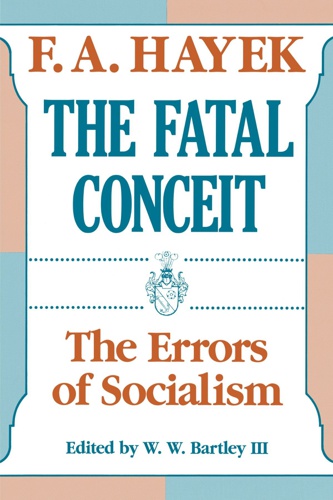
I was not expecting the eponymous fatal conceit to be as basic as the belief “that man can shape the world around him according to his wishes.” This might be one of the most basic ideas behind Hayek’s thinking, and at face value it sounds simple, but it is beyond subtle. Humans are not good at figuring out first and second order effects, and while we think we can grasp the relationships between different systems, most of the world around us is full of interaction effects that can’t be easily untangled.
This book is the source of a quote that by now has been drilled into my brain:
“The curious task of economics is to demonstrate to men how little they really know about what they imagine they can design.”
Human effort shapes the world through explicit goals, through hill climbing, but perhaps most importantly through unintended consequences.
Cosmopolitanism - Kwame Anthony Appiah
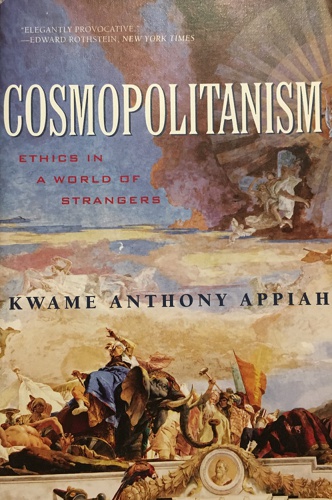
Cosmopolitanism is the last book in this list which I read for my class on modernism, which only assigned a single chapter from it, but I found the arguments so convincing that I went on to read the whole thing. The book wrests with the idea of moral relativism, one which I discovered as a teenager debating rabbis peddling their objective truths. It was exactly my kind of book. Appiah starts out on his search for a moral middle ground with Sir Richard Francis Burton’s analogy of a broken mirror, each shard of which reflects one part of a complex truth from its own particular angle. Most of us think that our little shard of mirror reflects the whole. Appiah instead takes the metaphor further: it’s not a single mirror, but instead “lots of mirrors, lots of moral truths.” The book then goes on to try and develop a way to deal with this lack of objectivity in a globalized world.
Early on, he distinguishes facts from values, but explains how what we consider factful science in the end is just a narrative. For example, our explanation of how boiling water kills germs in it to make it pure might as well be the primitive villager’s explanation of fire cleaning the evil spirits from the water - we don’t truly understand the process, so our “fact” of germs is as true as the villager’s “evil spirits.” They’re both useful abstractions to help us deal with the world. Science, as an institution, allows us to refine our ideas and to get to deeper and more correct explanations, but it by definition relies on the falsifiability of facts. What is not falsifiable, however, is that we have a shared experience. We live in the same world, and interact in the same time scales, while we might not share the same stories about why things are the way they are, we have obligations to each other because our decisions affect the possible lives of others around us. As Appiah says, “the real challenge to cosmopolitanism isn’t the belief that other people don’t matter at all, its the belief that they don’t matter very much.”
The question brought up by Cosmopolitanism is one of ordinality. Assuming we agree to disagree, and that different people’s values can all be valid at the same time, in times of conflict how do we decide whose values are more important, and who must yield? Here, the unit might be the nuclear family, the tribe, or the nation. It boils down to a question of us versus them, and I don’t think Appiah pretends to have the answer.
Siddhartha - Hermann Hesse

This one was a re-read after ten years. Siddhartha is a novel about life and its many stages, and finding peace in the flow of time. The plot spans the lifetime of the main character, but I was surprised by how little I remembered of the second half of the story. It narrates the life of a young man who leaves his home in search for enlightenment. In his quest, young Siddhartha latches onto new philosophies, and rejects them in turn, until he finds himself disillusioned and decides to lead a simpler life as a ferryman on a river, ultimately being fulfilled. The book is short, but packs a lot of important questions.
Radicalized - Cory Doctorow
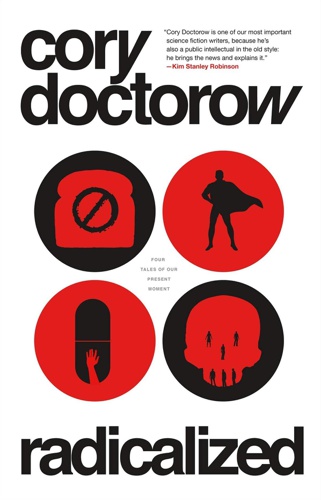
In this collection of short stories Doctorow considers issues at the intersection of technology and politics, with each story focusing on a completely different topic. The book opens with Unauthorized Bread, my favorite of the four, where a young marginalized refugee learns to hack her way around the DRM system in her subsidized apartment complex, empowering her immigrant neighbors by teaching them to jailbreak their devices, along the way challenging the economic system that allows her and her family to stay there. I didn’t think a story about toasters could be this fun. Next up, Model Minority discusses the problems of police brutality through a Superman-like character. It raises interesting questions about immigration and identity, but out of the four stories it was probably the one I liked the least, perhaps because I’m generally allergic to superheroes. The eponymous Radicalized is a critique of the healthcare system in the US. It explores the ways in which social media can be both a source of solace, as well as a catalyst for change that can pull us into fanaticism. It is a clever way to make us confront the dangers of base rate fallacies. Lastly, Masque of the Red Death is a modern take on Edgar Allan Poe’s namesake story, following a prepper VC and his friends as they save themselves from the collapse of civilization. The story reads as a dark parody of the kind of disaster that could lead to the communities that Doctorow writes about in Walkaway.
While Doctorow’s characters are not too complex, and the stories are fairly linear, I found them to be fun, and more importantly they made me wonder about whether the world we live in today could become one of Doctorow’s worlds. For better and for worse, his speculative futures seem pretty possible.
El Reino De Este Mundo - Alejo Carpentier
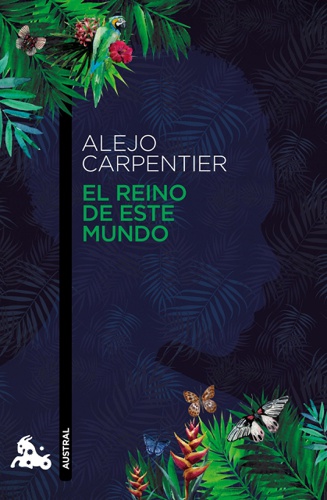
I don’t remember why I decided to take this with me when I went back home last year. Carpentier’s book was assigned reading in high school, and like the responsible student that I was, I skipped it. El Reino De Este Mundo is a historical novel that tells the events of the Haitian Revolution at the turn of the nineteenth century through the eyes of a slave. While the book narrates real historical events, it is brimming with characters with magical powers, and many unexplainable situations. In the prologue, Carpentier calls this style lo real maravilloso, a precursor to the later Latin American literature movement that became magical realism. Carpentier’s emphasis on the local cultures and their belief systems, and the effect those had on the events of the revolution makes the book read like a comparative analysis with the French colonizers as he draws stark parallels between the two set of characters. Not knowing anything about the history of Haiti probably made the experience of reading El Reino De Este Mundo worse, but it was still enjoyable.
Snow Crash - Neal Stephenson

Years ago, my friend Stephen recommended I read Snow Crash (some of his thoughts on it here. It took some time but I made it. I’d place Snow Crash in a similar category to Neuromancer: a novel whose imagined technologies went from being impossibly abstract and elusive to unavoidable, almost certain. It is baffling to think this book was published before I was born. The novel develops in a not-too-distant future, where a virtual reality successor to the Internet called the Metaverse acts as a parallel world to our own. Playing with concepts from anthropology, religion, linguistics, and more, Stephenson creates an immersive world where computer nerds, organized crime bosses, international terrorists, and skateboard couriers fight each other for control.
One of the most interesting aspects of science fiction is picking up on things which the author could not imagine a future world missing. You’re meant to expect the imagined futures of high tech innovations, but not things like Neuromancer’s anachronistic payphone calls or Snow Crash’s pizza delivery. Snow Crash is full of these little easter eggs, which makes it all the more amusing.
On Truth - George Orwell
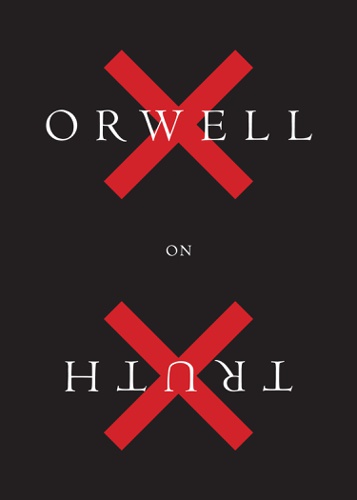
This collection of essays, excerpts, and letters, edited by Adam Hochschild, is an exercise in showcasing Orwell’s thoughts as if he were writing today, in the age of alternative facts and fake news. Writing in the 40s, Orwell distills tensions between democracy and war, conflicts of national identity and belonging, and the changing time scales of shared truth. Orwell’s writing is great, as I expected, but I found the book repetitive, and the use of over-designed pullout quotes and odd layouts to be distracting. I’d assume there are better collections out there.
The Age of Surveillance Capitalism - Shoshannah Zuboff

Surpassing 700 pages, this book was a challenge, but only a few pages in its content already felt monumental, defining. In her book, Zuboff defines surveillance capitalism as a new form of market accumulation, one in which the population is surveilled by corporations and harvested for their behavioral data. She further claims that modern tech companies operate under economic incentives that undermine human self-determination, building prediction models that shape our world, and our decisions. Reading it reminded me of Seeing Like A State, and the ways in which high modernism pushed for more legible societies. This is more of the same, but on software-powered steroids. Her conclusions are alarming, bordering on fodder for the ongoing moral panic around the power of big tech, but I found her perspective valuable.
Early on, she labels the use of the tools of surveillance as “instrumentarianism,” designating its “expression in a ubiquitous sensate, networked, computational infrastructure” as the Big Other. Perhaps coincidentally, Lacan uses the same phrasing (“the Big Other”) to describe the frame of language and law we are all born into. Zuboff’s fear, which I share, is that we’re moving to a world where individuals can’t opt out of this surveillance capitalist system, much like one has no choice but to accept and develop in the environment of a Lacanian “Big Other.”
In Zuboff’s view, industrial capitalism exploited nature, damaging oceans, forests, and rivers, while surveillance capitalism exploits human nature, damaging the social bonds between us and our sense of self through learned helplessness and habituation. She draws parallels between the rise of industrial capitalism and mass production to the rise of surveillance capital. She compares each era’s leaders’ calls for technological inevitability and the fights against the regulation of their enterprises, pointing out the previous eras’ businessmen’s complaints mirror those of today. Sure, transparency and respect for privacy would inconvenience their business models, and so did environmental regulation for industrial capital long ago, but we’re better off for it. Throughout the book, she builds a case against tech companies self-regulating, reviewing the history of how companies like Google and Facebook came about and noting that the incentives behind their enterprises from their inception necessitated the ability to extract information from their users.
As someone who clearly falls into Zuboff’s category of data-literate priests, literally building experimentation and analytics systems for one of these big companies, reading The Age of Surveillance Capitalism was tough, even if I can find solace in my company’s policies around privacy. Zuboff doesn’t have a specific call to arms, but instead attempts to build a framework and a language, to steep it in historical perspective, and to provide us important questions to continue the ongoing discussion with a more constructive toolkit. She invites us to tackle the inherent tradeoffs in these technologies head on. We’re all using these “free” services voluntarily, because they provide us value, but most of us don’t realize their true cost. I hope Zuboff’s framing becomes more widespread. Making the asymmetries involved more explicit and pointing out the hidden incentive structures is a laudable goal.
How to Do Nothing - Jenny Odell

I added How to Do Nothing to my to-read pile after reading Odell’s wonderful essay Designing for the In-Between, a recommendation I got from Alvaro Videla on the liminal space of our identities, biology, art, etc, and thoroughly enjoying it. Her book asks a lot of the same questions as this essay, pushing the reader to consider the arbitrariness of the categories and taxonomies in which we organize ourselves and the world around us:
[…] what would it mean to design for the in-between? For shapeshifting selves, for emergent alliances, for ambiguity, for contradiction? What would a social network look like that isn’t extractive, that would not appropriate but rather accommodate individuals and the not-quite-one, not-quite-two nature of actual interaction and identity? What’s the opposite of a trigger? How do you design for patience, for subtlety? Is it possible to build a system that’s as alive as we are?
This idea of ecological thinking, that humans are connected to each other and to our environment in subtle ways, was refreshing, and now I see it everywhere. While the title is misleadingly self-help-y (there is no guide or tutorial in this how to book), and the book felt a bit longer than it should have been, I really appreciated the wide-ranging perspectives that it had to offer on today’s zeitgeist of ideological crises and how to react to it. If anything, Odell’s book is an argument in favor of nuance over clear cut definitions. Is the organism the bee, or the beehive? Is a person from one place, or many? Which pieces of our identities and personalities fall somewhere along a spectrum, and not on a clear A or B?
I read this at the same time as I read Zuboff’s Surveillance Capitalism, and was curiously surprised by the parallel references. Both authors summon examples from Skinner, Arendt, etc, to make similar arguments about the human condition. I couldn’t figure out if there was a relationship between the two beyond plain common influences, but it felt serendipitous to go back and forth between them and see two faces of the same coin.
Less - Sean Greer

Less was a gift from Hannah’s grandma, and the two of us read it together in bits throughout the year. Unfortunately, this meant reading without much continuity, which made the experience less than ideal for a novel where years of the protagonist’s life are compressed into flashbacks and retellings during his travels. We’d often lose track of the characters, and be confused about where in the world Arthur Less was, or had been. The fact that there were constant self-referential notes and other very meta comments didn’t make things more clear.
The book is full of very sad scenes, in which Less, a gay author living in San Francisco, swings between confronting and escaping his past and what he sees as the failings of his life, both personally and professionally. The book’s structure is creative, and I wasn’t sure where Greer was taking us in his empathy-building adventure, which made it an interesting light read. After all the heartbreak that Greer puts Less through, from where I sit, the story of Arthur Less is not so bad.
Ethics of Ambiguity - Simone de Beauvoir
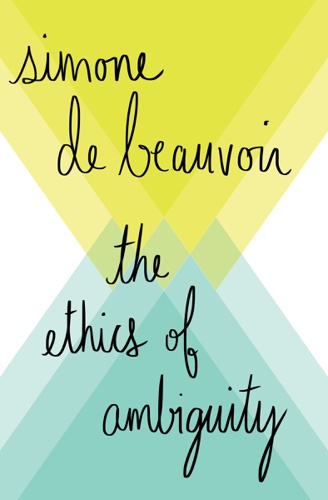
I got this one from my friend Danny, whose conversations with me often end up in existential doubts. I found De Beauvoir’s writing to be obtuse and inaccessible, especially considering that Ethics of Ambiguity is supposed to be one of the more approachable existentialist texts. The translation might be part of it, but more often than not I felt like full sentences didn’t have any logical meaning, were not really falsifiable, and only were there to sound pompous.
The book’s central idea is the contradiction of humans seeing themselves as the only free agent in a world of objects, while being in turn an object for others. Classifying people into different buckets based on their relationship to freedom, de Beauvoir explains how the child’s realization that the world around us is not static marks a juncture at which each one of us must either submit to our environment as ready-made or decide to try and change it. We can either take the values and ideas imposed on us by the time and place that we’re born into, or we can question them and make our own decisions of how to live life. She further subdivides the groups that recognize their own freedom into into nihilists, adventurers, etc.
In her view, and in my own, there are no absolute moral imperatives, but there is a real world around us that constrains what we can and can’t do. Understanding we have choices while developing ourselves in this setting is the source of our humanity, with ambiguity stemming from the challenge of making meaning out of the meaningless.
Invisible Countries - Joshua Keating

I picked up Invisible Countries after reading this thread from Balaji Srinivasan on “M&A for countries.” It is easy to forget that the current paradigm of every bit of land being assigned to a political entity through mutual recognition with its peers is relatively new. Keating makes a compelling case against the concept of Westphalian sovereignty and it’s modern U.N. sponsored expression by bringing specific examples that are incongruent with our mental model of what a country is, including new de-facto states like Abkhazia and centuries-old organizations like the Knights of Malta. Importantly, Keating’s book is more descriptive than prescriptive. He doesn’t try to propose a new world order, but instead tries to poke holes in very ingrained notions of how the world works. Keating keeps things interesting by bringing in specific examples from his travels. For such a dense and nuanced topic, his accessible writing definitely helps drive the point home.
Vanished Kingdoms - Norman Davies

I had Vanished Kingdoms on my shelf for years and started reading it at the beginning of the year, but dropped it and re-started after six months. The structure of the book is pretty unique. Each chapter covers the history of a specific place/empire in three sections: First, Davies presents a bit of what exists there today, in modern times. Then, he brings up a historical sketch of its ancient peoples and rulers (this piece forms the bulk of each chapter). Lastly, he tells us if and how those empires are remembered in the places’ collective memory. Davies goes broad in geography as well as in eras covered, presenting the precursors to most of today’s European nations. The author does a really good job of painting a full picture of each of these places and their peoples. Not being a history buff, I found myself in many Wikipedia rabbit holes.
An odd thing about reading Davies is how much he emphasizes Polish history. I never knew how pivotal Poland’s role was in the development of modern Europe. This is especially ironic considering I’m the descendant of Polish Jewish immigrants, but I guess they never really saw themselves as Poles until they were externally defined as such by Costa Ricans that didn’t know better. I wish I knew more about how my great grandfather made it from Poland to Berlin, or how my dad’s side of the family landed in Żelechów, and which of the places/nations Norman discusses they identified with, if any. Unfortunately, even recent history can get lost.
I found the book fascinating, because it really makes you question the cohesiveness of groups of people that today are taken for granted, the arbitrariness of borders, and the unequivocal path dependence of history. While Davies assumes you know a good amount of background history (especially when discussing the antecedents of the UK, Germany, or France) he lays the groundwork to make centuries of history pretty accessible. Can’t recommend this one enough.
Fooled By Randomness - Nassim Taleb

Halfway through Fooled By Randomness, Taleb talks about his experience of rediscovering Karl Popper and his works, having it suddenly click in his brain, and proceeding by devouring his works. It was odd to read that, as I could easily draw a parallel to myself. I first read Taleb ~7 years ago, didn’t get it, and after picking it up again last year, it only took a couple of days to finish his first book, and put a hold on the next one at the library.
Taleb is well known for his abrasive writing and his opinionated theories, but the arguments he makes in Fooled by Randomness about how often we underestimate the effect of randomness in our day to day lives seem broadly undeniable. Taleb calls us out on our behavior again and again, particularly our overestimation of causality and our embracing of narratives to explain the world. As he’d say “The problem with thinking is that it causes you to develop illusions,” which in some way is just a way of advising us to remain skeptical, and to constantly remember that randomness plays a bigger role than our brains allow us to understand.
The Hitchhiker's Guide To The Galaxy - Douglas Adams

When I told my friend Nikhil, an avid audiobook listener, that I was looking for a good light audiobook novel he suggested I do The Hitchhikers Guide. He hadn’t listened to it, but given that it was originally a radio comedy he thought it’d be a good option.
I enjoyed how the book plays with anthropocentric views of society, both at the level of the earth as a planet and the human species in a much broader world. The chapters discussing the Infinite Improbability Drive were really fun, particularly because I was also reading Taleb’s Fooled By Randomness at the same time, and the mere idea of traveling by simultaneously visiting every point of a probability distribution function was amusing. Being constantly surprised by the origin story of memes, both those that I already knew came from the book (42, don’t panic, etc.) to those that I didn’t (Paranoid Android! Thanks for all the fish! Towelie!) made listening to it quite entertaining, but considering the outsized role it has in pop culture, I had gone in with too high expectations and was ultimately a bit disappointed.
And that’s what I read! As for 2020, I’ll stick with my page count goal, increasing the estimate to 30 books, which should take me to ~9000. It’s ambitious, but it’s the only way I will be make it through this ridiculous spreadsheet. If you think there’s a book I should add to my queue, or just want to share a thought on my reviews above, please reach out!
You can find my lists from previous years here: 2018, 2017, and 2016.
Photo: Peter Bichsel Fine Books, Zürich, Switzerland, by me. Previously posted on Europa V, Zürich MMXX.